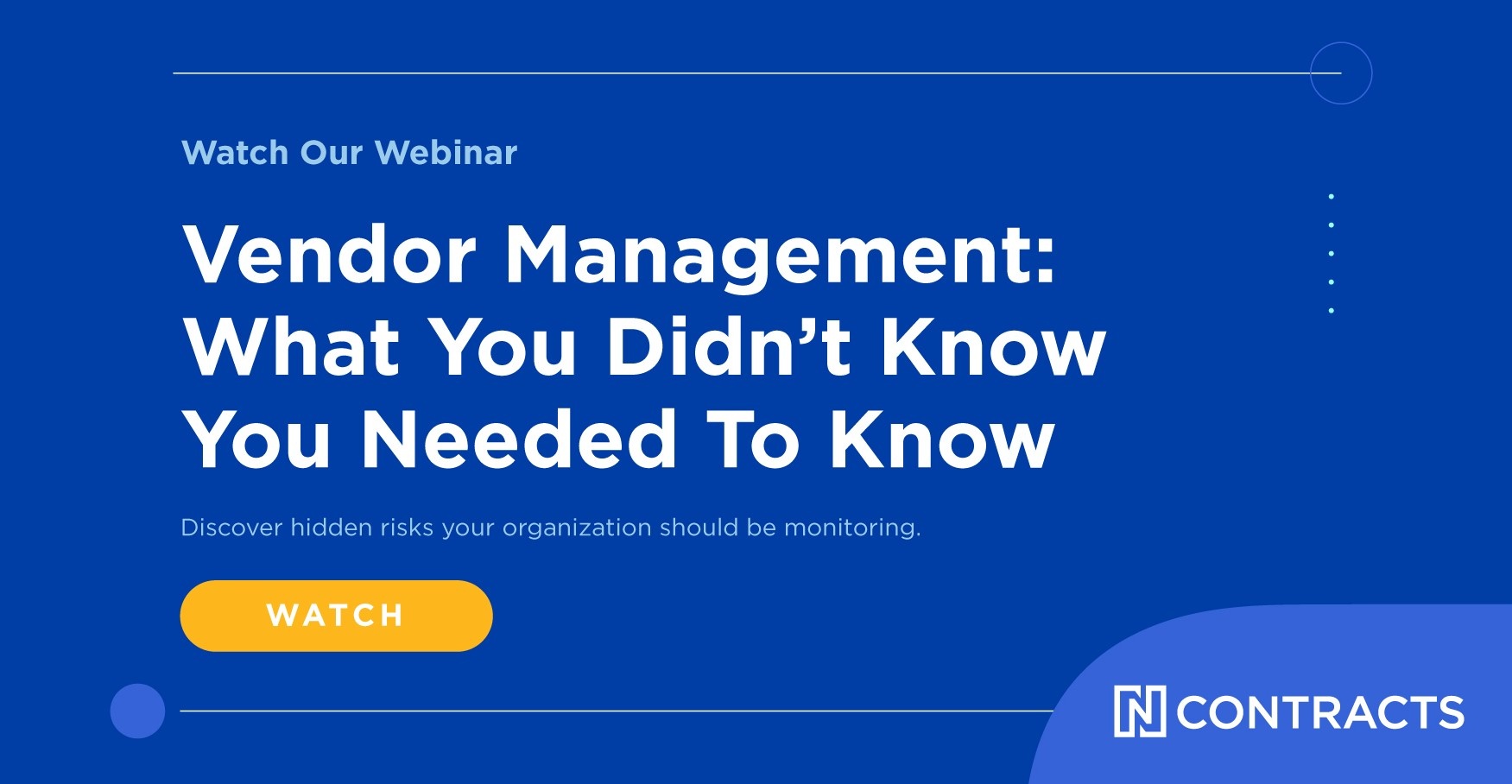For years, financial institutions have outsourced a variety of activities to third-party vendors creating a new conundrum: Should we outsource vendor management?
The answer depends on a variety of factors, including the size and location of the institution, as well as its financial condition.
4 Reasons to Outsource Vendor Management
-
Increase productivity/control labor costs
In markets where talent is expensive, hiring someone dedicated to vendor management can be a costly proposition. In these cases, it’s often more cost effective to outsource rather than hire a paralegal with salary expectations in the low six figures.
-
Ensure current best practices are used
Using the wrong approach to vendor management doesn’t just increase risk - it can also increase costs. Many vendor decisions are made by business line managers that handle vendor management two or three times a year, never building up proficiency or developing a standardized process. They may even use the wrong information to review vendors.
Other times, they oversimplify the process, creating just two tiers of vendors: critical and everything else, a practice left over from the original Gramm-Leach Bliley Act (GLBA) requirements. Not only is this two-tiered approach outdated, it results in a huge number of critical vendors. For instance, one small community bank had identified 32 critical vendors when they really should have had nine. The bank wasted all kinds of resources applying extra scrutiny and due diligence to vendors who didn’t need the attention. There are also financial institutions that err in the other direction, including one $5 billion-asset bank that identified just two critical vendors.
Outsourcing vendor management ensures that vendor management is performed by third-party experts with an up-to-date working knowledge of vendor management best practices. It avoids making bad business decisions with flawed information. Standardizing deliverables ensures every department is using the same process and getting the same results.
Outsourcing makes vendor management more effective and efficient and provides cost savings.
-
Achieve consistency
When one individual is responsible for developing and managing an internal vendor management system, that information is often held by just that single person. When that person goes on vacation, takes time off for life events, or quits, the work is shuffled off to a backup who doesn’t necessarily know what to do. This can result in two problems:
- The backup does it wrong. Tasked with vendor management, the backup will give it his best shot, but if he doesn’t know what he’s doing, he can easily make costly mistakes, like missing critical information on a SSAE 18. This can create problems down the road.
- The backup wastes a lot of people’s time asking questions. The backup wastes time reinventing the wheel and asking a bunch of questions that the vendor manager already asked.
Outsourcing creates stability. Losing an employee won’t mean losing systems, policies, and procedures. They are already developed and stored in an easily accessible place.
-
Overcome talent shortages
Financial institutions in rural areas can have trouble hiring top talent. They also have limited budgets for ongoing training. That may make it extremely difficult to find someone to handle vendor management, particularly document review. Sometimes, even CEOs and CFOs face an uphill battle in reviewing financial statements, operating under the outdated concept that a vendor must meet the same qualifications as a loan applicant. For example, it might make sense for a start up to be running in the red for a few years if it has a business plan and capital that support it in the long term. It would be a shame to miss out on an innovative technology from a thriving start up due to a failure to understand the financials.
4 Reasons Not to Outsource Vendor Management
-
Leverage existing expertise
Very large institutions have the capability to dedicate a significant number of staffers to vendor management with different teams assigned to vendor relationship management and vendor risk management. These people are professional vendor managers who do nothing but engage in vendor management day in and day out. The relationship managers gather information from both internal and external sources to assess vendor strength and complete performance scorecards. Risk managers gather and read the documents and then risk assess vendors. These staffers become professional vendor management experts.
-
Leverage existing infrastructure
Large institutions are used to handling activities in-house and often have the resources to develop their own in-house vendor management systems and programs. If there are already software developers and a large compliance department on staff and they have excess capacity, it may make sense to keep vendor management in-house.
-
Limited resources and financially challenged
If an institution isn’t performing well financially and has extremely limited resources, it makes sense to spend available capital on revenue generating activities. In this case, it’s trading the risk that something goes wrong with vendor management for the certainty that its revenues aren’t maximized, the institution is likely to go out of business.
-
There is no one else who can do it
If an institution uses an extremely unusual approach to vendor management, it may be necessary to create its own internal software and systems to ensure processes conform to its needs.
One Caveat
When outsourcing vendor management, make sure the vendor you use is equipped to objectively review all vendors—including itself. This is frequently an issue at companies that outsource IT resources to the same company that manages vendor management. Study your vendor agreement and service level agreement to ensure that the vendor management provider uses effective controls and will take just as critical an eye to its own services as to those of its competitors.
